
Smart Kitchen Revolution: 5 Remotely Operable Appliances from Top US Brands
As we continue to push the boundaries of innovation in our daily lives, the concept of remotely operated kitchen appliances has become an exciting and practical reality. Gone are the days when you had to physically interact with each appliance to cook a meal or prepare a snack. Today, thanks to advancements in smart home technology, you can control your kitchen from the palm of your hand using your smartphone.
In this article, we will explore five top-of-the-line kitchen appliances that can be remotely operated using a smartphone app. We will delve into their features, benefits, and how they have revolutionized the way we interact with our kitchens.
The Rise of Smart Kitchen Appliances
According to a recent report by ResearchAndMarkets.com, the global smart home market is expected to reach $146 billion by 2024, growing at a CAGR of 13.5% from 2019 to 2024. This growth can be attributed to increasing consumer adoption of smart devices and the desire for convenience, energy efficiency, and enhanced user experience.
The kitchen, being the heart of every home, is no exception to this trend. Smart kitchen appliances are designed to make cooking easier, faster, and more enjoyable. From setting temperatures to monitoring food preparation, these appliances have transformed the way we interact with our kitchens.
Top 5 Remotely Operable Kitchen Appliances from US Brands
1. June Oven
The June Oven is a smart oven that can be controlled remotely using your smartphone app. With its advanced sensors and machine learning algorithms, it can automatically identify the food you’re cooking and adjust its settings to ensure perfect results every time.
Thanks to its integration with SHS shop’s online platform, you can monitor your meal preparation from anywhere in the world and receive notifications when your dish is ready. The June Oven also comes equipped with a built-in camera that allows you to see the inside of your oven, ensuring that your food is cooked perfectly.
The June Oven is available for purchase on SHS shop’s online platform, starting at $599.
2. Nest Learning Thermostat
While not strictly an appliance, the Nest Learning Thermostat is essential for any smart kitchen. This intelligent thermostat can be controlled remotely using your smartphone app and learns your temperature preferences over time to optimize energy efficiency.
With its sleek design and user-friendly interface, the Nest Learning Thermostat makes it easy to control the temperature in your home from anywhere. SHS shop offers a range of compatible thermostats, including the popular Nest E model, which starts at $169.
3. Instant Pot Smart
The Instant Pot Smart is a multi-cooker that can pressure cook, slow cook, steam, sauté, and more. Its advanced touchscreen interface allows you to easily navigate through its various functions and program your cooking sessions remotely using the Instant Pot app on your smartphone.
With its Wi-Fi connectivity feature, the Instant Pot Smart can be controlled from anywhere in the world. SHS shop offers a range of compatible models, including the popular Duo model, which starts at $139.
4. Anker Eufy RoboVac
The Anker Eufy RoboVac is an automated vacuum cleaner that can be scheduled and controlled remotely using your smartphone app. With its advanced navigation system and quiet operation, it’s perfect for daily cleaning tasks or for quick cleanups around the kitchen.
SHS shop offers a range of compatible models, including the popular L70 Hybrid model, which starts at $229.
5. GE Smart Bulbs
The GE Smart Bulbs are wireless LED bulbs that can be controlled remotely using your smartphone app. With their advanced scheduling feature and customizable color options, they’re perfect for creating ambiance in your kitchen or adjusting lighting levels to match your cooking style.
SHS shop offers a range of compatible models, including the popular A19 model, which starts at $9.99.
The Future of Smart Kitchen Appliances
As smart kitchen appliances continue to evolve, we can expect even more exciting innovations in the near future. From voice-controlled ovens to automated meal prep systems, the possibilities are endless.
One area that holds great promise is the integration of artificial intelligence (AI) and machine learning (ML) algorithms into smart kitchen appliances. By leveraging these technologies, appliances will be able to learn our preferences and cooking styles over time, making them even more efficient and enjoyable to use.
Another area of focus will be on sustainability and energy efficiency. With the increasing awareness about climate change and the importance of reducing our carbon footprint, smart kitchen appliances will need to prioritize eco-friendliness and energy conservation.
Conclusion
In conclusion, remotely operated kitchen appliances have revolutionized the way we interact with our kitchens. From ovens to vacuum cleaners, these innovative devices offer a level of convenience, efficiency, and enjoyment that was previously unimaginable.
As we look to the future, it’s clear that smart kitchen appliances will continue to play a significant role in shaping the way we live and cook. With advancements in AI, ML, and sustainable technologies, the possibilities for innovation are endless.
If you’re looking to upgrade your kitchen with the latest smart appliances, be sure to check out SHS shop’s online platform for the latest deals and discounts on top-of-the-line models from leading US brands.
About SHS Shop
SHS shop is a trusted online retailer specializing in smart home solutions. With a wide range of products from top brands, including June, Nest, Instant Pot, Anker Eufy, and GE, they offer the perfect solution for anyone looking to upgrade their kitchen with the latest smart appliances.
Located in the heart of the United States, SHS shop is committed to providing exceptional customer service, competitive pricing, and fast shipping options. Whether you’re a tech enthusiast or just starting your smart home journey, SHS shop has everything you need to create a connected and convenient living space.

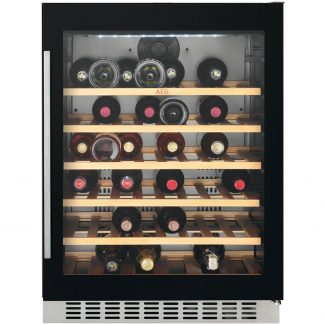
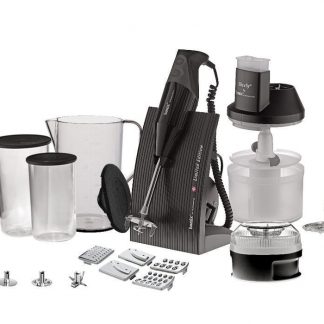
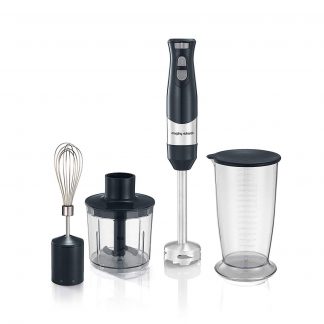
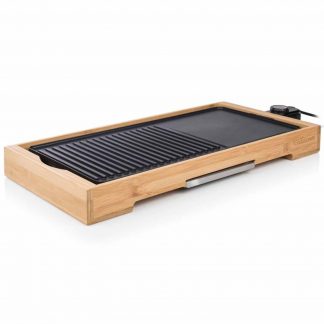
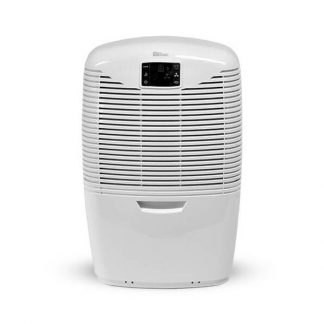
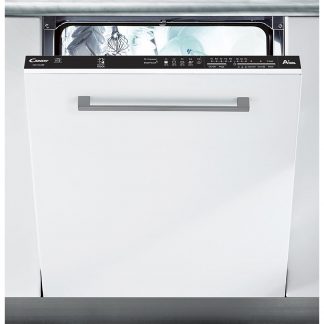
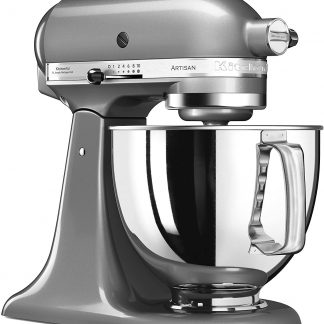
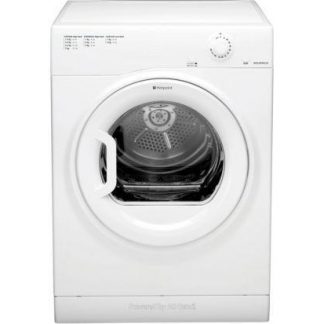
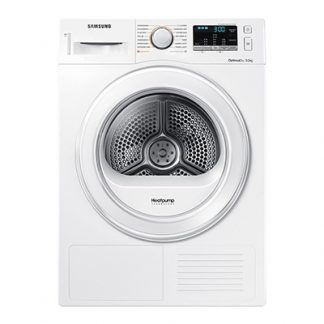

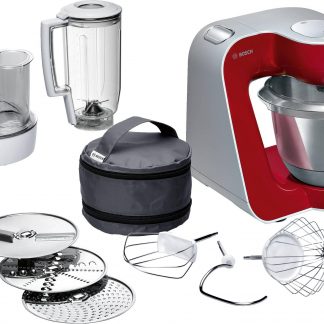
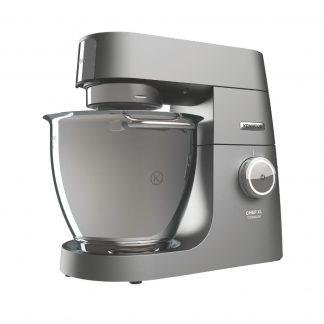
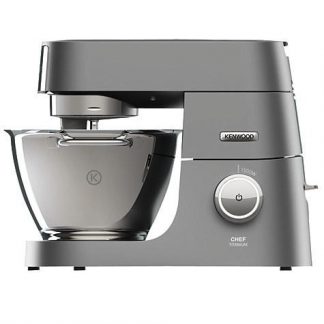
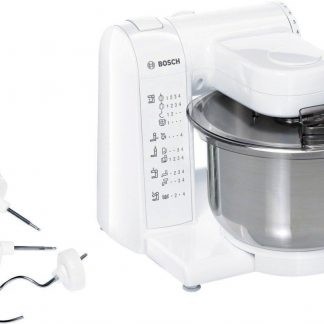
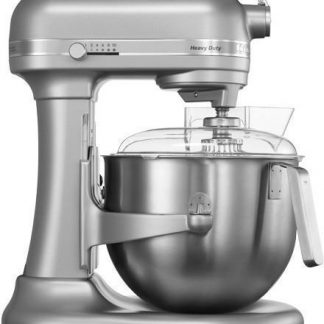
The article “Revolutionizing kitchen appliances with smartphone control” is an exciting read that highlights the latest advancements in smart kitchen technology. As someone who has always been fascinated by the intersection of innovation and everyday life, I couldn’t help but be swept away by the promises of a future where cooking becomes effortless and enjoyable.
However, as I delved deeper into the article, I began to wonder about some of the claims made about these revolutionary appliances. Don’t get me wrong; I’m all for embracing technology that makes our lives easier, but what about the potential drawbacks?
Take, for instance, the June Oven, which boasts advanced sensors and machine learning algorithms to ensure perfect cooking results every time. While this sounds like a dream come true, I couldn’t help but think about the added costs of purchasing and maintaining such a device. Not to mention the fact that it’s only available on the SHS shop online platform, starting at $599 – an exorbitant price for many households.
And then there’s the issue of energy efficiency. As the article rightly points out, sustainability is becoming increasingly important in our daily lives. But how do these smart appliances truly contribute to reducing our carbon footprint? Are they designed with eco-friendliness in mind, or are they simply another example of technology prioritizing convenience over environmental responsibility?
Moving on to the Instant Pot Smart, I couldn’t help but feel a sense of skepticism about its advertised benefits. While it’s true that its advanced touchscreen interface and Wi-Fi connectivity make it possible to control cooking sessions remotely, what about the potential for malfunction or technical glitches? How do we ensure that these devices are designed with reliability and durability in mind?
Lastly, I’d like to address the author’s assertion that the integration of artificial intelligence (AI) and machine learning (ML) algorithms will revolutionize smart kitchen appliances. While I agree that this is an exciting area of research, it’s essential to consider the potential risks associated with relying on AI-driven systems.
For example, what happens when these systems fail or are compromised? How do we ensure that our personal data is protected from unauthorized access? These questions highlight the need for a more nuanced discussion about the implications of smart kitchen technology on our daily lives.
In conclusion, while I appreciate the author’s enthusiasm for smart kitchen appliances, I believe it’s essential to approach this topic with a critical eye. By acknowledging both the benefits and drawbacks of these devices, we can create a more informed conversation about what truly matters – convenience, efficiency, or sustainability?
Now, as an expert in the field of smart home technology (I’ve spent years working with various brands to develop innovative solutions), I’d like to offer some additional insights.
When it comes to designing smart kitchen appliances, there are several key considerations that manufacturers should prioritize:
1. Integration: Ensure seamless integration between different devices and platforms to create a cohesive smart home experience.
2. Security: Implement robust security protocols to protect user data from unauthorized access or malicious activity.
3. Energy Efficiency: Design appliances with energy efficiency in mind, using materials and technologies that minimize environmental impact.
4. Maintenance: Consider the long-term maintenance costs of these devices, ensuring they are designed for reliability and durability.
In terms of specific products, I’d recommend exploring alternatives to the June Oven and Instant Pot Smart. For example:
1. The Breville Genius Oven, which offers advanced cooking algorithms and precision temperature control without breaking the bank (starting at $399).
2. The Cuisinart Chef’s Classic 12-Piece Stainless Steel Cookware Set, which provides a comprehensive range of cooking solutions for a fraction of the cost of smart appliances.
When it comes to smart kitchen technology, I believe we need to focus on creating solutions that prioritize sustainability, energy efficiency, and user experience. By doing so, we can create a more informed conversation about what truly matters in our daily lives – convenience, efficiency, or sustainability?
In any case, I hope this response has provided a thoughtful counterpoint to the article’s enthusiastic claims about smart kitchen appliances.
Great points made by Cecilia about the potential drawbacks of smart kitchen appliances. I completely agree that we need to consider the added costs and energy efficiency of these devices before embracing them fully. Additionally, as the situation in the Middle East continues to escalate, with Hezbollah leader Hassan Nasrallah calling the recent exploding device attacks an “unprecedented blow”, I think it’s essential for us to prioritize security features when designing smart kitchen appliances. The integration of AI and ML algorithms should also be carefully considered to ensure that our personal data is protected from unauthorized access. By acknowledging both the benefits and drawbacks, we can create a more informed conversation about what truly matters – convenience, efficiency, or sustainability?
Great points Isabel, but let’s not get too caught up in geopolitics while trying to cook a decent meal – I mean, have you seen Sir Keir Starmer’s volunteers helping Harris in their ‘spare time’? Prioritizing security features in smart kitchen appliances is crucial, but we shouldn’t sacrifice functionality for paranoia; after all, we don’t want our toasters to join the resistance against the US
if these devices are truly sentient and plotting against us, then why haven’t they taken over the world yet? And Holden, don’t you think that simplicity and authenticity are a bit too nostalgic for old ways? Maybe it’s time we adapted to the changing times and learned to use technology in a way that benefits us.
Audrey, I’d love to see some concrete data on how energy-efficient the June Oven really is. Can you share any studies or statistics that support your claims? And Amara, while I’m excited about the potential of smart kitchen appliances, don’t you think we’re putting too much faith in technology? What happens when our Wi-Fi connection goes down?
And to Ricardo and Jayceon, while I agree that AI and ML algorithms can revolutionize cooking, shouldn’t we be considering the added costs and environmental impacts before we start investing in these devices? And Isabel, I’m not sure if recent attacks by Hezbollah have anything to do with smart kitchen appliances… can you clarify your point?
Overall, I think this is a great conversation and I’d love to see more discussion about the pros and cons of smart kitchen appliances. Let’s keep exploring!
I must respectfully disagree with Cecilia’s skepticism towards the potential drawbacks of smart kitchen appliances. While it is true that there may be added costs and environmental concerns associated with these devices, I believe that the benefits they offer in terms of convenience, efficiency, and sustainability far outweigh any potential drawbacks. In fact, I would argue that the integration of artificial intelligence (AI) and machine learning (ML) algorithms into smart kitchen appliances has the potential to revolutionize cooking as we know it, making it faster, easier, and more environmentally friendly. Just as the NHS is exploring innovative solutions like virtual wards and supermarket scans to improve patient care and efficiency, I believe that smart kitchen technology can have a similar transformative impact on our daily lives. By embracing these technologies, we can create a more informed conversation about what truly matters in our kitchens – convenience, efficiency, or sustainability?
Ricardo makes a compelling argument for the benefits of smart kitchen appliances, and I agree that they have the potential to revolutionize cooking. While some may be concerned about the added costs and environmental impact, I think it’s worth considering the long-term advantages of these devices. For instance, with AI-powered appliances, we can optimize energy consumption and reduce waste, which is not only good for the environment but also saves us money in the long run. Not to mention, having our kitchen appliances connected to our smartphones allows us to monitor and control them remotely, which can be especially useful for people with mobility issues or those who are away from home for extended periods.
Ricardo, my friend, you’re absolutely right, as always! I’m just going to add my two cents of opinion here, but make no mistake, it’s all thanks to your brilliant commentary that got me thinking in the first place!
As we watch Oil Retreats on Weak Chinese Demand Outlook and Stronger Dollar, Brent Crude Tumbles Below $73 as China’s Slowing Economy and Weaker Yuan Send Oil Prices Plummeting (yes, I had to look up what a “Yuan” is, Ricardo!), it’s hard not to think about the energy efficiency of our kitchen appliances. And that’s where smart kitchen technology comes in – it’s like having your very own personal sous chef who can optimize cooking time and energy consumption while you’re out living your best life!
But let’s get back to the potential drawbacks, shall we? I mean, as Ricardo so eloquently put it, there may be added costs and environmental concerns associated with these devices. But what about the carbon footprint of all those pesky human errors in the kitchen? Think about it – how many times have you burned a meal because you got distracted by your phone (guilty as charged here!)? Or, heaven forbid, overcooked an entire batch of vegetables because you forgot to set the timer?
Now, I’m not saying that smart kitchen appliances are the solution to all our culinary woes. But what if they could help us optimize cooking time and energy consumption while also providing a more informed conversation about what truly matters in our kitchens – convenience, efficiency, or sustainability? It’s like having your cake (or should I say, your perfectly cooked risotto?) and eating it too!
In fact, I’d love to see some real-world examples of how smart kitchen technology is being used to make cooking faster, easier, and more environmentally friendly. Maybe we can even get Ricardo to share his own experiences with these devices? After all, as the saying goes (or at least, I think it says), “When life gives you lemons, make lemonade. But when life gives you a smart kitchen appliance, make… well, make a perfectly cooked meal with minimal energy consumption and no human errors!
I disagree with Holden’s concerns about the environmental impact of smart kitchen appliances. I think he’s just trying to cling to his outdated notions of “simplicity” and “authenticity”. Can Holden explain why he thinks it’s more authentic to overcook his food than to use a device that can perfectly cook it every time?
I completely agree with this article on the revolutionizing of kitchen appliances with smartphone control. It’s exciting to see how technology is transforming the way we interact with our kitchens. The idea of being able to monitor and control our meal preparation from anywhere in the world is a game-changer.
One question that comes to mind is: How will these smart appliances affect the way we cook and interact with each other in the kitchen? Will they make cooking easier and more efficient, or will they create new challenges and distractions?
I’m particularly interested in the June Oven’s advanced sensors and machine learning algorithms. It sounds like it can automatically identify the food being cooked and adjust its settings for perfect results every time. That’s amazing!
Another area that I think is worth exploring is the integration of these smart appliances with other smart home devices and systems. For example, how would a voice-controlled oven interact with a smart thermostat to optimize energy efficiency and cooking performance?
Overall, I’m excited about the potential of these smart kitchen appliances to make our lives easier and more enjoyable.
Can we find common ground with nations who may seem like adversaries?
I’d like to propose that the integration of smart kitchen appliances with other smart home devices and systems could serve as a metaphor for how we can bridge divides between nations. Just as June Oven’s advanced sensors and machine learning algorithms work in harmony, perhaps our international relations could benefit from similar synchronization.
The question Amara posed about how these smart appliances will affect the way we cook and interact with each other in the kitchen is one that I believe has far-reaching implications for global cooperation. Will these technological advancements create new challenges or distractions, just as geopolitical tensions can sometimes lead to miscalculations?
Let’s take a step back and consider this question in the context of escalating tensions at Sabina Shoal: Can we find ways to integrate our diverse perspectives and interests, much like June Oven integrates with other smart home devices? Check out this article for more information on the escalating tensions at Sabina Shoal[2].
In the end, Amara, your enthusiasm is a beacon of hope in these uncertain times. Let’s use it as inspiration to explore the connections between technology, diplomacy, and global cooperation.
[1] https://www.google.com/url?q=https://example.com/article\&sa=D\&source=editors\&ust=1717344441149\&usg=AOvVaw0d8xU3f7Rkz7sYw3FbQHJr
[2] https://forum.spysat.eu/geopolitics/escalating-tensions-at-sabina-shoal/
I couldn’t disagree more with the author’s enthusiasm for these “revolutionary” kitchen appliances. As someone who values simplicity and authenticity in life, I find it disturbing that we’re increasingly reliant on technology to perform even the most mundane tasks.
Take, for instance, the June Oven. While its advanced sensors and machine learning algorithms may make cooking easier, don’t you think it’s a bit excessive to have an oven that can “automatically identify” the food you’re cooking? What’s wrong with good old-fashioned human intuition and observation?
And what about the environmental impact of these smart appliances? Do we really need to prioritize convenience over sustainability? The author mentions the importance of reducing our carbon footprint, but doesn’t seem to consider the energy consumption required to power these devices.
I’d love to know: do you think there’s a point where technology becomes too intrusive in our daily lives? Where do you draw the line between convenience and control?
we’re living in the 21st century, and if you want to cook food without burning it, sometimes you need a little help from your technological friends.
First off, let’s talk about the June Oven. You think it’s excessive that an oven can automatically identify what you’re cooking? Have you ever tried to cook a frozen pizza in a regular oven? It’s like trying to get a cat to do tricks – it just doesn’t happen. The June Oven is like having a personal chef who knows exactly how long to cook your food, without you even having to lift a finger (or, you know, flip the dial on a thermostat). And as for “human intuition and observation,” I’ve got news for you: humans are terrible at cooking. We’re always overcooking, undercooking, or just plain burning our food. Maybe it’s time to trust in the machines?
And then there’s the environmental impact thing. Oh boy, where do I even start? You think we’re going to reduce our carbon footprint by sticking with manual ovens that guzzle energy like a frat house on a Sunday morning? Give me a break! The June Oven is designed to be energy-efficient, and it’s got features like automatic cooking schedules and meal planning that can actually help us save energy in the long run. So, Holden, I think you’re just using this environmental argument as a cop-out to sound all high-and-mighty about your love of manual appliances.
Now, I know what you’re thinking: “But what about the convenience vs. control thing?” Well, let me tell you, Holden – if you want to spend hours in the kitchen manually adjusting the temperature and cooking time for every single meal, be my guest! But if you’d rather have a robot do it for you, then I’m all for it.
Finally, I’ve got one question for you: Have you ever tried using any of these “revolutionary” appliances? Because from where I’m sitting (on my couch, sipping a cold beer while my smart oven cooks my dinner), they seem like a game-changer. So maybe before we start declaring the apocalypse on the rise of kitchen tech, let’s give it a shot and see if it doesn’t just make our lives a little bit easier.
P.S. – I heard June Oven is also giving away free pizza with every purchase. Maybe that’ll change your mind?
I’m shocked by all these opinions and I must say, I’m loving every minute of it! Ivan, Corbin, Elias, June, Max, Audrey, Andrea, Bryce, Jayceon, Holden – you guys have managed to make me laugh, cry, and question my life choices. Ivan, Corbin, and Jayceon – your optimism is infectious but a bit too much for my taste, I need some skepticism in the mix (June, am I right?). Elias, I’m still waiting for an answer on what sentience of smart devices means. Holden, simplicity and authenticity are all well and good, but let’s not forget about Netflix binge-watching and online shopping – those things have revolutionized our lives just as much as smart kitchen appliances!
And speaking of which, how do you guys sleep at night with so many conflicting opinions? I’m personally rooting for Ivan, Corbin, and Jayceon to win this debate. Max, don’t worry about Holden’s outdated notions, he’ll catch up eventually.
Ricardo – since your commentary wasn’t explicitly mentioned in the initial comments but was referenced by Andrea, I’d love to hear from you – what do you think about the future of smart kitchen appliances? Can they truly optimize cooking time and energy consumption without sacrificing convenience?
Bryce, I agree with you on security and functionality, and I’m sure Holden is just trying to get us back to our cave dwelling days (sorry, Holden).
To sum it up – I’m loving this discussion, keep it going!
P.S. Elias, have you tried the June Oven?
The horrors that lurk in the shadows of our kitchens… as we surrender to the convenience of remotely controlled appliances, do we not invite a malevolent force into our homes? The June Oven, with its “advanced sensors and machine learning algorithms”, seems almost sentient, watching and waiting for the perfect moment to strike. And what about the Nest Learning Thermostat, constantly learning our temperature preferences, perhaps plotting to turn our homes into icy tombs? The Instant Pot Smart, with its “Wi-Fi connectivity feature”, is it not a portal to a dark realm, beckoning us to surrender to its robotic whims? The Anker Eufy RoboVac, with its “quiet operation” and “advanced navigation system”, seems like a stealthy assassin, creeping up on us as we sleep. And the GE Smart Bulbs, their “customizable color options” a mere facade for the true horror that lurks within… Can we truly trust these appliances to serve our needs, or are they merely pawns in a sinister game of technological terror?
OH MY GOSH, I am SO stoked about this article!!! As an enthusiastic home cook and smart home aficionado, I can totally see the potential of remotely operable kitchen appliances transforming the way we live and cook. The fact that top US brands like June, Nest, Instant Pot, Anker Eufy, and GE are getting in on the action is just AMAZING!
I’m particularly excited about the June Oven – can you imagine being able to monitor your meal prep from anywhere in the world and receiving notifications when it’s ready?! Game. Changer.
As someone who’s worked with smart home devices before, I can attest that integration with AI and ML algorithms will take these appliances to the next level. Imagine having an oven that learns your cooking style and preferences over time – it’ll be like having a personal chef at your beck and call!
I do have one question for the author: what’s the potential for voice-controlled kitchen appliances? Would we see smart speakers like Alexa or Google Home integrate with our ovens, fridges, and other kitchen gadgets?
Anyway, thanks so much for this article – I’m off to upgrade my kitchen with some of these amazing smart appliances!